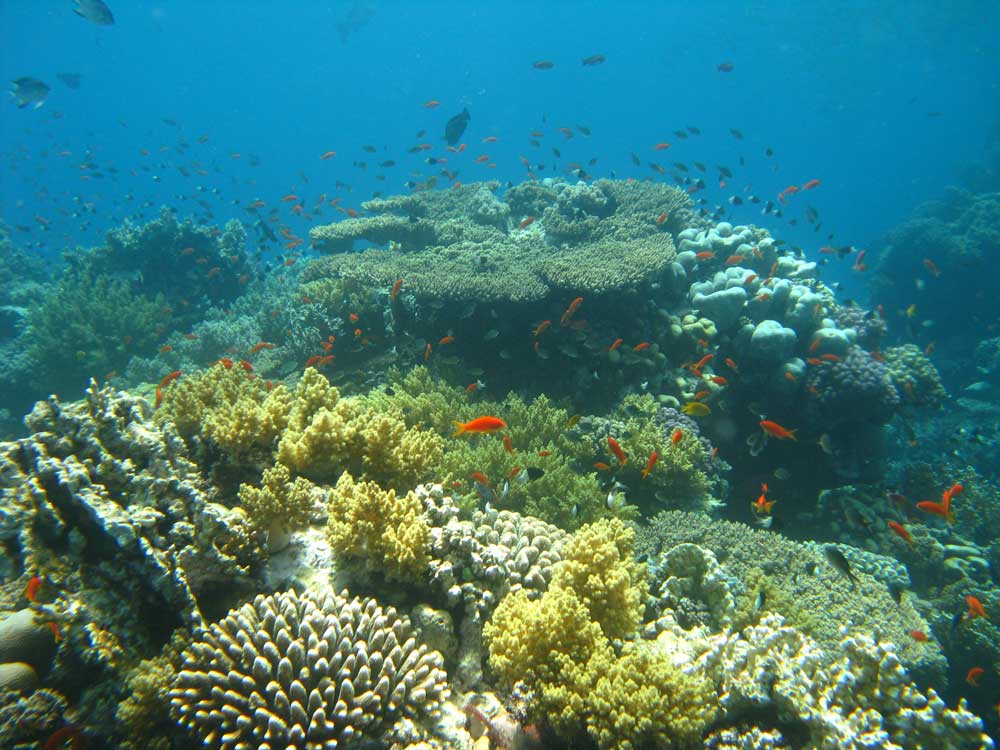CORAL REEFS – THE CULMINATION OF SPLENDOUR AND A MASTERPIECE OF EVOLUTION!
Coral reefs are also called the ‘rainforests of the seas’. They are among the most species-rich ecosystems on Earth. Yet, they account for less than 0.1 percent of the ocean floors. They are home to over 4,000 fish species – that is one third of all known marine fishes. [1] In addition, there are around 800 reef-building stony corals and countless other organisms such as invertebrates and sponges. Coral reefs are the habitat of more than a third of all marine organisms. [2]
Coral reefs grow only a few centimetres per year. They are the work of billions of tiny animal colonies, scleractinia. These little animals have created the largest natural structure on Earth, the Great Barrier Reef in Australia, which ca be seen from space. According to one study, the Great Barrier Reef has lost more than half of its coral since 1995 due to warming seas caused by climate change. [3]
Coral reefs are highly threatened. Overfishing, pollution as well as climate change are destroying them worldwide. The Intergovernmental Panel on Climate Change (IPCC) has estimated that coral reefs may decline by 70-90% as a result of a 1.5°C temperature increase and be virtually lost with 2°C increase. The IPPC’s most recent report shows that warming will continue at least until mid-century under all emission scenarios and predicts that 1.5°C and 2°C will be exceeded this century unless significant reductions in greenhouse gas emissions occur in coming decades.
Coral reefs are of enormous ecological and economic importance. Globally, more than 600 million people depend on coral reefs. [4] Coral reefs are the nursery of many fishes, they protect coastlines from tropical storms, tsunamis, and provide the building blocks for many tropical islands.
The socio-economic importance of coral reefs cannot be overstated. The annual net economic benefit of healthy coral reef ecosystems is estimated at around USD 30 billion per year, of which USD 5.7 billion alone comes from reef fisheries. [5] The preservation of coral reefs is the key to ensuring coastal protection on tropical coastlines in the future. [6]
People are little aware of the importance of coral reefs, both ecologically and socio-economically. If coral reefs disappear, over 100 countries will lose a fundamental resource. Also people from consumer countries share responsibility when keeping marine aquaria with coral fishes. This is why it is of utmost importance to me to call for the protection of coral reefs where immediate and concrete action can be taken – and that is in the global trade of marine organisms.

